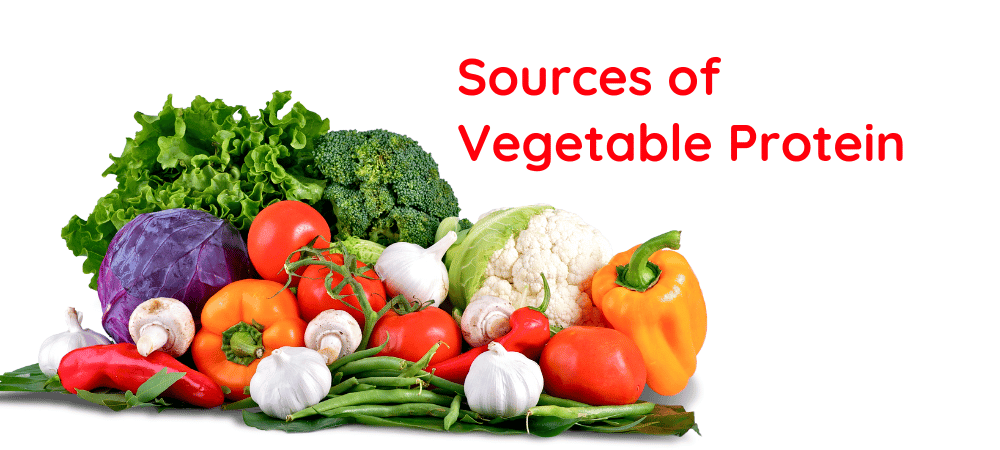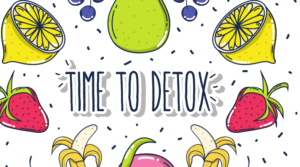Introduction
Too many people think that the only way to get enough protein in their diets is to eat animal products. But what they don’t realize is that there are plenty of vegetable sources of protein out there! In this blog article, we will be exploring these different sources of vegetable protein so that you can make sure that your diet is healthy and balanced. We’ll cover everything from legumes and grains to nuts and seeds, as well as what types of meals you can make using these sources. So, if you’re trying to switch up your diet or add more plant-based proteins into your routine, then look no further: this article has got you covered.
Beans
Beans are a great source of vegetable protein, providing around 15g of protein per 100g serving. They are also a good source of fiber and contain a range of vitamins and minerals, making them a healthy addition to any diet. Beans can be eaten on their own or added to other dishes such as salads, soups, and stews.
Lentils
Lentils are a type of legume that are an excellent source of protein. They are also high in fiber and low in calories, making them a healthy choice for those looking to add more protein to their diet. Lentils can be cooked in a variety of ways and are often used in soups, stews, and salads.
Chickpeas
Chickpeas, also known as garbanzo beans, are a type of legume that are high in protein and fiber. They can be used in a variety of dishes, such as hummus, curries, and salads. Chickpeas are a good source of vitamins and minerals, including iron, folate, and phosphorus.
Soybeans
Soybeans are a type of legume that are native to East Asia. They are an important crop in many countries, including China, Japan, and South Korea. In the United States, soybeans are the second most planted crop, after corn.
Soybeans are a good source of protein and contain all of the essential amino acids that our bodies need. They are also a good source of fiber and antioxidants.
There are many different ways to eat soybeans. Some popular methods include:
- Eating them whole as edamame
- Adding them to soups or salads
- Using them as an ingredient in veggie burgers or other vegetarian dishes
- Making soy milk or tofu
Peas
Peas are a great source of plant-based protein. One cup of cooked peas contains around 8 grams of protein, making them a great option for vegetarians and vegans looking to boost their protein intake. Peas are also a good source of fiber and essential vitamins and minerals, making them a nutrient-rich food.
Nutritional Yeast
Nutritional yeast is a type of deactivated yeast that is often used as a condiment or seasoning. It is yellow in color and has a nutty, cheesy flavor. Nutritional yeast is an excellent source of protein, vitamins, and minerals. It is also low in calories and fat.
Quinoa
Quinoa is a nutritious whole grain that provides a good source of vegetable protein. It is also a good source of fiber and minerals, and is low in fat. Quinoa can be cooked in many different ways, and can be used as a substitute for rice or other grains in recipes.
Spelt and Teff
There are a variety of grains that can be used to provide vegetable protein, including spelt and teff. These grains are high in protein and fiber, and can be used in a variety of recipes. Spelt can be used in place of wheat flour in breads and other baking recipes, while teff can be used to make porridge or added to soups and stews. Both grains are a good source of vegetarian protein and can be used to increase the protein content of meals.
Amaranth and Buckwheat
Amaranth and buckwheat are two lesser-known sources of vegetable protein that are worth exploring. Amaranth is a small, gluten-free grain that is high in protein and fiber. It has a nutty flavor and can be used in place of rice or quinoa in many recipes. Buckwheat is also a gluten-free grain that is high in protein and fiber. It has a hearty, earthy flavor and can be used in place of rice or quinoa in many recipes.
Hemp Seeds
Hemp seeds are an excellent source of protein, containing all 20 amino acids, including the 9 essential amino acids that our bodies cannot produce. They are also a good source of omega-3 and omega-6 fatty acids, which are essential for our health. Hemp seeds can be eaten raw, ground into a powder or made into a hemp milk.
Hemp seeds are a complete protein, meaning they contain all 20 amino acids, including the 9 essential amino acids that our bodies cannot produce. This makes them an excellent source of protein for vegetarians and vegans. Hemp seeds are also a good source of omega-3 and omega-6 fatty acids, which are essential for our health. Hemp seeds can be eaten raw, ground into a powder or made into a hemp milk.
Chia Seeds
Chia seeds are a source of vegetable protein that is high in fiber and Omega-3 fatty acids. They can be eaten whole or ground into a powder and used in baking or smoothies. Chia seeds are also available as an oil.
Flaxseeds
Flaxseeds are a good source of vegetable protein and contain all the essential amino acids your body needs. They’re also a good source of fiber, antioxidants, and omega-3 fatty acids.
Sunflower Seeds
Sunflower seeds are a good source of vegetable protein. One ounce (28 grams) of sunflower seeds contains 6 grams of protein, making it a good choice for people who are looking for a plant-based protein option. Sunflower seeds are also a good source of fiber and essential fatty acids.
Sesame Seeds
Sesame seeds are a good source of vegetable protein. They contain all the essential amino acids that our bodies need to function properly. One ounce (28 grams) of sesame seeds contains 6 grams of protein, making them a great option for people who are looking to add more protein to their diet. Sesame seeds are also a good source of fiber and healthy fats.
Pumpkin Seeds
Pumpkin seeds are a good source of vegetable protein. One ounce of pumpkin seeds contains about 7 grams of protein. Pumpkin seeds are also a good source of fiber and magnesium.
Conclusion
Vegetable proteins are an important part of a healthy and balanced diet. There are plenty of animal-based protein sources, but vegetarian options like legumes, nuts, seeds and grains can provide just as much protein for vegans and vegetarians alike. With this article we have provided some insight into the different sources of vegetable protein available to those who adhere to these diets so that they can ensure that their nutritional needs are met.
Here Some Super Protein Source Of Protein Supplement 100% Safe



